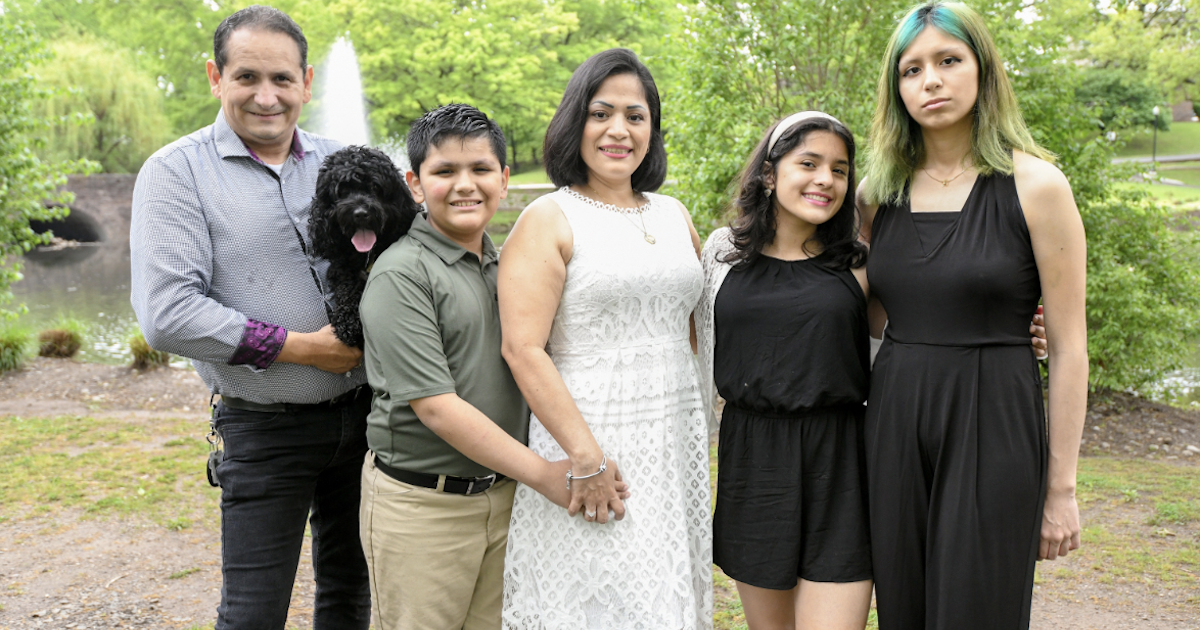Colon Cancer in Young Adults
- Colon cancer is more common in people over age 50; however, there has been a spike in cases in younger adults over recent years.
- Tatiana Gonzalez, a mom of 3, began experiencing symptoms at age 39, but thought a change in her bowel habits had to do with a reduction in exercise.
- Her story is another reminder that young adults need to be vigilant about reporting new symptoms to their doctors.
- Current guidelines call for people to begin colon cancer screenings at age 45.
Tatiana explained that she became extremely constipated and needed to use laxatives to go to the bathroom, but she chalked that up to the steep reduction in physical activities. Change in bowel habits is one of several symptoms that can indicate colon cancer.
Read More- A change in the color or consistency of stool
- Rectal bleeding or blood in the stool
- Persistent abdominal pain like cramps or bloating
- Feeling that the bowel doesn’t empty
- Weakness or fatigue
- Unexplained weight loss
Colon Cancer Screening
Current recommendations from the U.S. Preventive Services Task Force call for most Americans to be screened for colon cancer beginning at age 45 and continue screenings regularly through age 75. The recommended starting age was recently adjusted due to the rise in colon cancer among younger adults.
Dr. Heather Yeo, a colorectal cancer surgeon and Weill Cornell, explains the different types of colon cancers that tend to be found in younger adults.
“The only age group [the colon cancer rate] has not been going down in is the age group under 50,” Dr. Heather Yeo, a colorectal cancer surgeon at Weill Cornell Medical Center, told SurvivorNet. “And that age group has increased about 1.3% per year for 15 to 20 years. We don’t know exactly why it’s increasing. It’s a different type of cancer. The colon cancers that are in the younger age group are more likely to be on the left side, they’re more likely to be rectal cancers, they’re more likely to be kind of aggressive tumor types.”
Adjusting After Colon Cancer
In Tatiana’s case, the fact that she went in for a colonoscopy ended up saving her life. This is why it’s so important to report symptoms (or what you think could be symptoms) to your doctor. She first needed a colostomy (a surgery that redirects the colon to a new opening in the abdominal wall) and an ileostomy (where the small intestine is diverted through an opening in the abdomen). She temporarily needed to wear a colostomy bag, or a bag that collects waste on the outside of the body.
She described the experience as “very hard for me.” Many patients feel a sense of shame surrounding needed cancer treatments, particularly patients that need to use colostomy bags. However, the bags can be managed with some adjustments, and concealed so that patients can go on living their lives.
Fortunately, Tatiana’s colostomy bag was temporary. She went through several surgeries and then was able to undergo chemotherapy and radiation.
Though her life was upended by the cancer diagnosis, Tatiana says that she’s learning step-by-step how to live as a cancer survivor. That includes changes to her diet, as she can no longer eat foods she enjoyed like rice, beans and broccoli. “It’s trial and error,” she told Hackensack Meridian.
She mom is now in remission and being carefully monitored to ensure that her disease doesn’t come back. And the experience has left her with advice for anyone who notices changes to their bowel habits “Don’t be afraid of colonoscopies.”
Questions to Ask Your Doctor
- When should I begin colon cancer screening?
- What symptoms indicate the need to begin colon cancer screening earlier?
- Should I consider genetic testing if I have a family history?
Learn more about SurvivorNet's rigorous medical review process.

